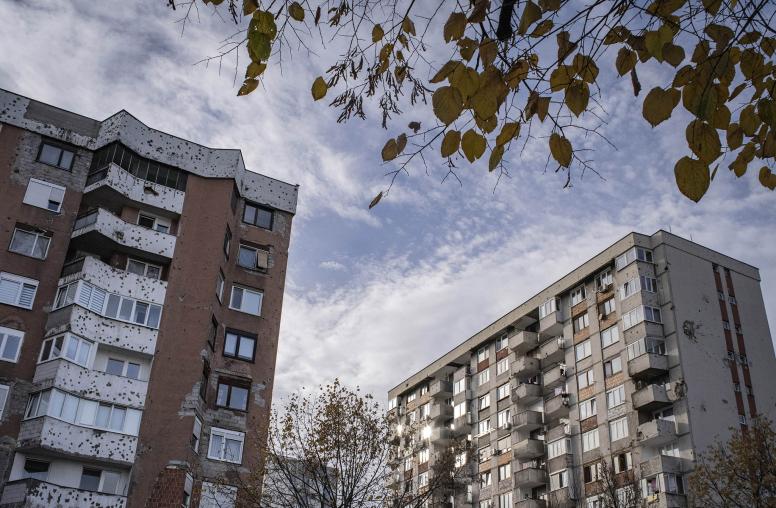Catholic Contributions to International Peace
The United States Institute of Peace launched its Religion and Peacemaking Initiative in July 2000, building on experience gained from an earlier Institute program entitled Religion, Ethics, and Human Rights. This new initiative endeavors to aid American religious organizations in being more active and more effective as international peacemakers.

Summary
- Religious organizations are making important contributions to international peacemaking. The styles of such peacemaking are dependent on the theology and tradition of the religious bodies involved.
- Despite the criticisms that have been leveled at the Roman Catholic Church for not contributing to peace adequately at the time of the Holocaust and the genocide in Rwanda, the Catholic Church, both in the United States and worldwide, has an impressive record of peacemaking initiatives and accomplishments.
- The Catholic vision of peace consists of (1) human rights, (2) development, (3) solidarity, and (4) world order, but until recently has placed less emphasis on conflict resolution and transformation.
- Vatican pronouncements have given more attention in recent years to non-violence and downplayed just-war analysis.
- Following Vatican II (1962-65), the establishment of bishops' conferences throughout the world and the establishment of justice and peace commissions have enhanced the church's ability to promote conflict resolution.
- Pope John Paul II has played an unprecedented role in promoting peace and justice in countries like Lebanon, Poland, and Haiti. Individual bishops like Bishop Samuel Ruiz in Mexico, Bishop Belo in East Timor, Archbishop Monswengo in Congo, and Patriarch Michel Sabbah in Jerusalem have all played significant roles in their countries in promoting peace with justice.
- Deeply affected by the Rwandan genocide, Catholic Relief Services, based in the United States but operating internationally, now assesses a project's impact on justice and peace as one important indicator of the project's value.
- Sant'Egidio, a Catholic lay organization based in Rome with an American branch, has made dramatic interventions to promote peace in Mozambique, Burundi, Congo, Algeria, Kosovo, and elsewhere. Its peacemaking style is deeply rooted in Catholic tradition and theology.
About the Report
The United States Institute of Peace launched its Religion and Peacemaking Initiative in July 2000, building on experience gained from an earlier Institute program entitled Religion, Ethics, and Human Rights. This new initiative endeavors to aid American religious organizations in being more active and more effective as international peacemakers.Submit Resource | United States Institute of Peace
One component of this initiative has been the organization of a series of workshops on the peacemaking activities of various American religious communities. A workshop on Mennonite peacemaking was held in November. In December a workshop explored the sources of conflict resolution in Judaism. On February 5 the initiative organized a workshop on Catholic peacemaking. The purpose was to explore the peacemaking activities of key Catholic organizations and to explicate the distinctively Catholic nature of peacemaking by these and other Catholic organizations. The discussion focused on the Vatican, the U.S. Conference of Catholic Bishops, Catholic Relief Services, and the lay organization Sant'Egidio.
This Special Report summarizes the presentations at that workshop. It has been prepared by David Smock, director of the Religion and Peacemaking Initiative.
The views expressed in this report do not necessarily reflect those of the United States Institute of Peace, which does not advocate specific policies.



